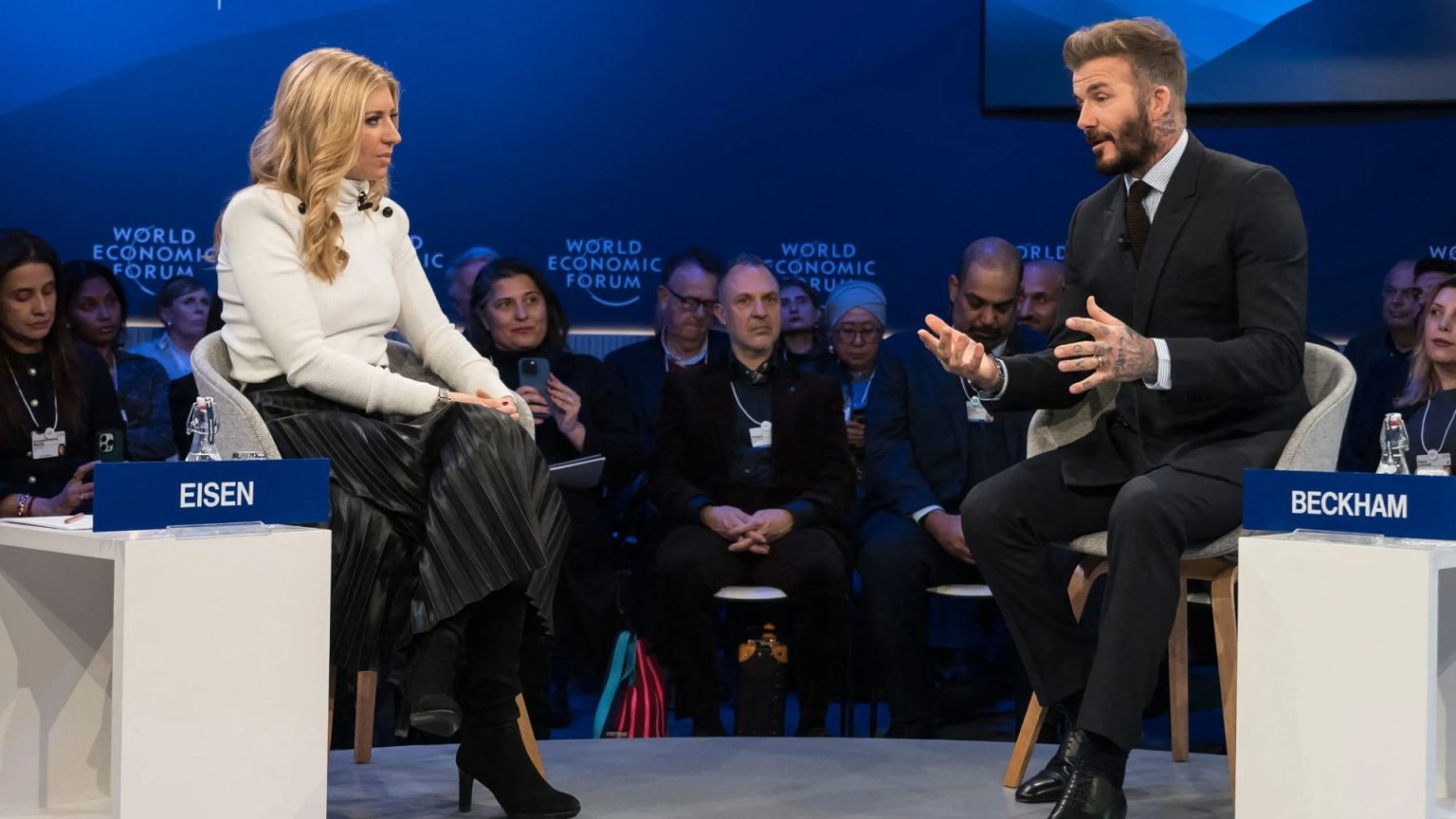David Beckham, the renowned football icon, graced the World Economic Forum (WEF) annual meeting in Davos, Switzerland, not for his sporting prowess, but for his unwavering commitment to improving the lives of children worldwide. The dapper 49-year-old, a UNICEF Goodwill Ambassador, accepted an award recognizing his tireless efforts and advocacy for children’s rights and well-being. Beyond the glitz and glamour associated with the gathering of global elites, Beckham delivered a poignant message, emphasizing the persistent discrimination faced by girls and the urgent need for collective action to ensure equal opportunities. He passionately articulated his desire for his daughter, Harper, to have the same life chances as her three older brothers, underscoring the importance of empowering girls through opportunity and investment.
Beckham’s presence at the WEF served as a powerful reminder of the potential for influential figures to leverage their platform for positive social impact. His advocacy extends beyond mere rhetoric; it is rooted in concrete action through his work with UNICEF. The organization, known for its global reach and dedication to children’s rights, has benefited greatly from Beckham’s commitment, amplifying its message and extending its reach. His involvement transcends fundraising and encompasses active participation in various initiatives aimed at improving the living conditions, educational prospects, and overall well-being of vulnerable children across the globe.
The WEF, a platform typically associated with economic discourse and high-level policy discussions, provided a unique backdrop for Beckham’s advocacy. His presence highlighted the interconnectedness of global issues, emphasizing that economic progress and social development are intrinsically linked. By sharing the stage with world leaders, business tycoons, and other influential figures, Beckham brought the often-overlooked issue of children’s rights to the forefront of the global agenda. His message resonated with the audience, demonstrating the power of celebrity influence to mobilize support for critical social causes.
Alongside Beckham, Ukrainian President Volodymyr Zelensky also addressed the WEF assembly, underscoring the forum’s role as a platform for global dialogue on pressing international issues. Zelensky’s presence brought the ongoing conflict in Ukraine into sharp focus, reminding the world of the human cost of war and the urgent need for peaceful resolutions. The juxtaposition of Beckham’s advocacy for children’s rights and Zelensky’s plea for peace served as a powerful reminder of the multifaceted challenges facing the world today and the need for collective action to address them.
Beyond his philanthropic endeavors, Beckham’s recent revelations about his childhood admiration for Manchester United legend Mark Hughes add a touch of personal nostalgia to his public persona. He recounted how he, as a young boy, eagerly awaited Hughes’ autograph outside Old Trafford, captivated by the striker’s prowess on the field. Interestingly, Beckham shared this admiration with his mother, Sandra, although her reasons were reportedly focused on Hughes’ physique rather than his football skills. This anecdote provides a glimpse into Beckham’s formative years, revealing the influences that shaped his passion for football.
In conclusion, David Beckham’s appearance at the World Economic Forum transcended the realm of celebrity appearances. It was a testament to his dedication as a UNICEF Goodwill Ambassador, his unwavering commitment to children’s rights, and his ability to leverage his platform for meaningful social impact. His presence, alongside figures like President Zelensky, highlighted the WEF’s role as a crucial platform for addressing global issues, from economic development to humanitarian crises. Furthermore, Beckham’s personal anecdotes, like his childhood admiration for Mark Hughes, offer a glimpse into the experiences that shaped him, adding a layer of human connection to his public image.











